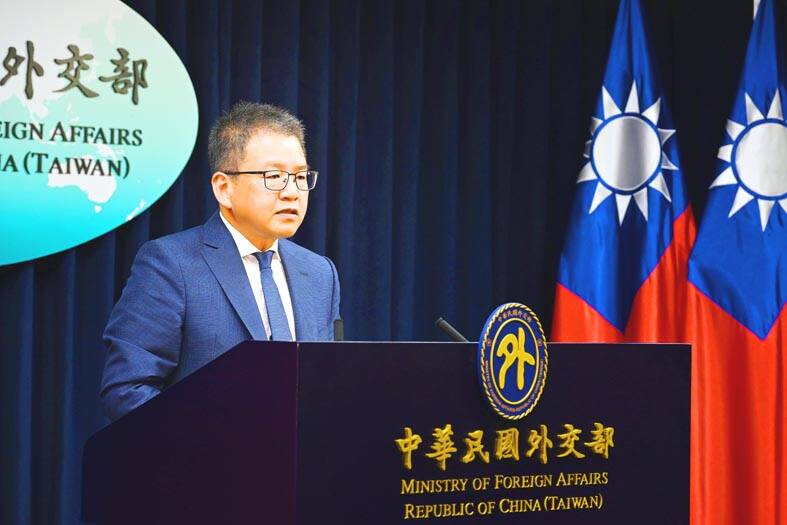







































Taiwan imposes chip export restrictions on South Africa over dispute
 AI
AI
 REP
REP
 REPUBLICAN
REPUBLICAN
 UTED
UTED
 WOULD
WOULD
Taiwan has imposed restrictions on the export of semiconductors to South Africa and now demands pre-approval for most shipments.
The measure comes after Pretoria relocated Taiwan’s liaison office from the capital, Pretoria, to Johannesburg, a step Taipei interprets as an offence against its sovereignty and national security. It is a reminder of how technology supply chains have become intertwined with international diplomacy.
The action has had an immediate effect on Taiwan Semiconductor Manufacturing Company (TSMC), the globe’s leading manufacturer of semiconductors. The company makes 50% to 70% of all semiconductors and up to 90% of the most advanced chips that are used in AI, electric vehicles, and industrial machinery.
South African companies that rely on these chips face the imminent threat of potential project delays ranging from AI coding to auto manufacturing and industrial automation.
Philippe Yen, director-general of Taiwan’s Ministry of Foreign Affairs department of West Asian and African Affairs, stated that the government cooperated with the authorities responsible for relevant trade to implement the measures.
“To protect our sovereignty and national dignity, we are working with the agencies on countermeasures such as potential limitations on chips,” Yen added.

The actions follow a July 2025 threat, when Taiwan threatened to block chip exports after Pretoria threatened to limit chip exports following a decision to relocate its embassy. The move has awakened international interests as South Africa’s action was viewed as pro-China.
Tech supply chain under pressure
TSMC chips are essential for training AI models, operating industrial machinery, and supplying automotive electronics. Disruption in accessing these chips would be a setback to timelines for technology uptake by various industries.
South African businesses are now looking at supply chains and peering around for alternative sources, but none is as technologically sophisticated as Taiwan.
Experts warn that even temporary interruptions would delay AI innovation, reduce industrial manufacturing efficiency, and hinder the production of electric vehicles, particularly as South Africa speeds up its tech and industrial development in the lead-up to the G20 summit, later in November.

Taiwan’s International Trade Administration pointed out that the pre-approval process focuses on national security concerns. Companies seeking to import advanced chips must offer voluminous applications, stating intended use and compliance with Taiwan’s trade policy.
Read also: Trump excludes smartphones, computers, chips, and other gadgets from 10% tariff
Diplomatic fallout and global attention
The diplomatic tension has roots in 2023, when South Africa initially requested that Taiwan relocate its liaison office following a BRICS summit in which the president of China was present. Although South Africa frames the relocation as a normal business-driven shift, it is perceived by Taiwan as a demotion of itself, resulting in these trade restrictions.
The controversy has also come under the watch of the U.S. Congress, where South Africa’s behaviour is under scrutiny under the U.S.-South Africa Bilateral Relations Review Act of 2025 by legislators.
Republican Congressman Ronny Jackson emphasised that unilateral behaviour affecting Taiwan can undermine trust with international partners, whereas Congressman Chris Smith has said such behaviour would undermine South Africa as a credible strategic ally.

South Africa contends the action aligns with United Nations resolution 2758, recognising China as the only legitimate representative of “China” in international affairs. The government insists the new Trade Office in Johannesburg preserves diplomatic immunities for Taiwanese personnel but indicates the non-political, commercially focused nature of its engagement.
The context of events draws attention to the broader geopolitical effects of technological superiority. Taiwan’s bargaining power demonstrates how semiconductors, once regarded as industrial materials in themselves, are now tools of diplomacy and strategic influence.
Governments, companies, and investors now need to operate within a world where technology policy and global affairs are increasingly intertwined.
As the standoff continues, South African officials insist that the relocation of Taiwan’s office is a normal diplomatic courtesy. Meanwhile, Taiwan suggests that the restraints will continue until sovereignty is respected.
The episode shows that during the modern era of globalisation, the decisions of semiconductor exports can no longer be separated from global politics, and technology supply chains now stand at the forefront of international politics.

